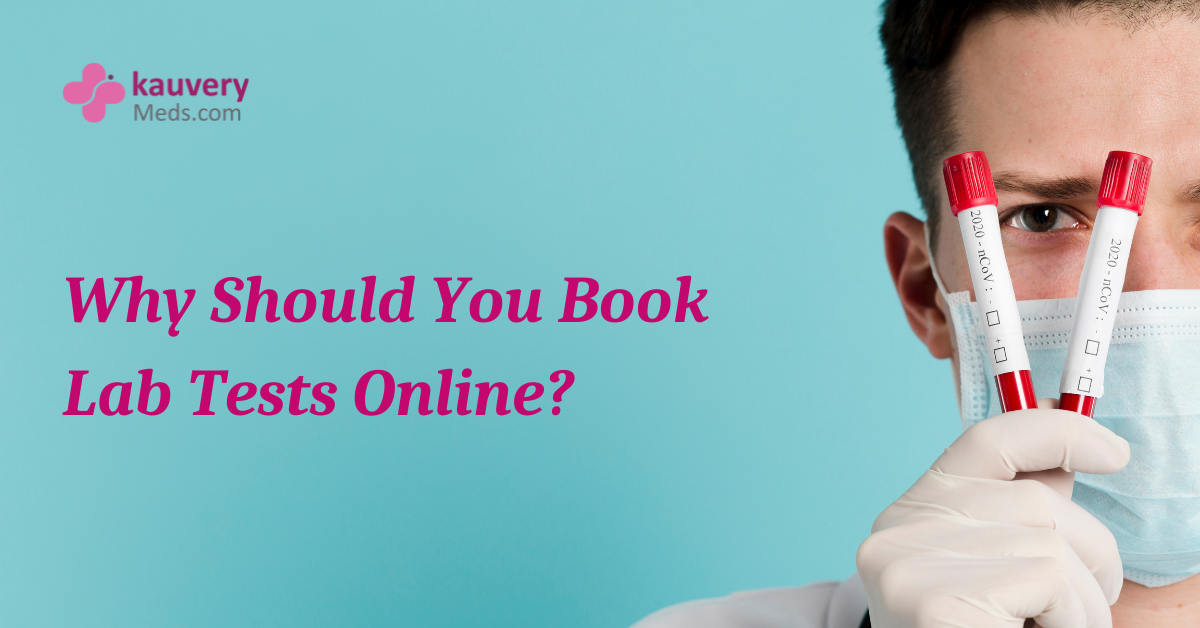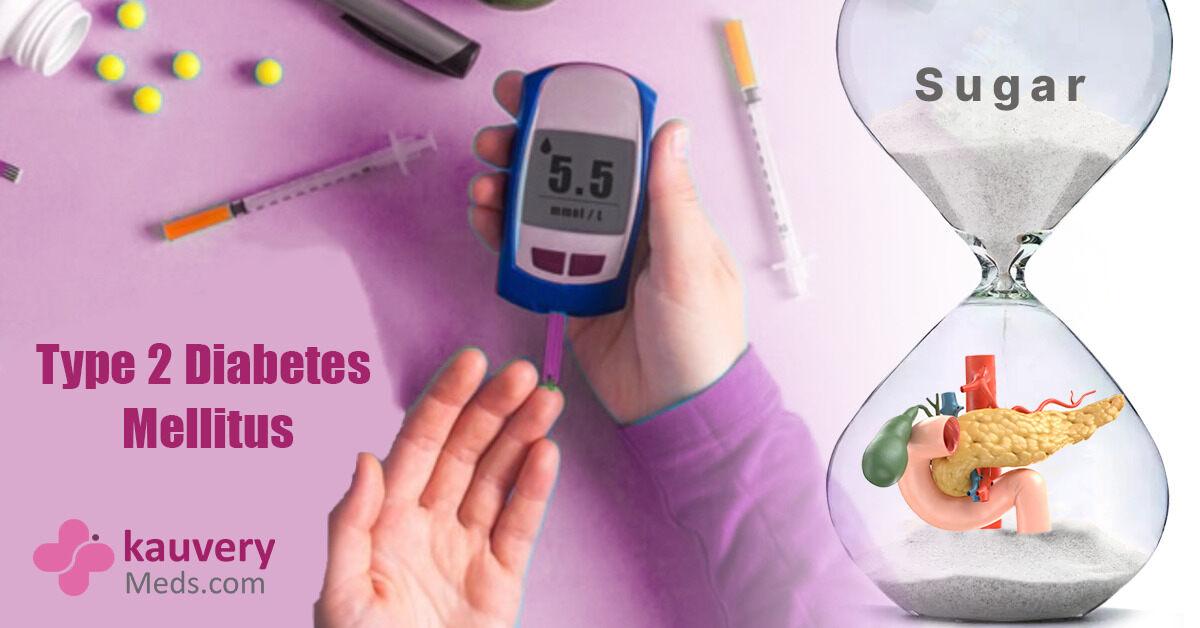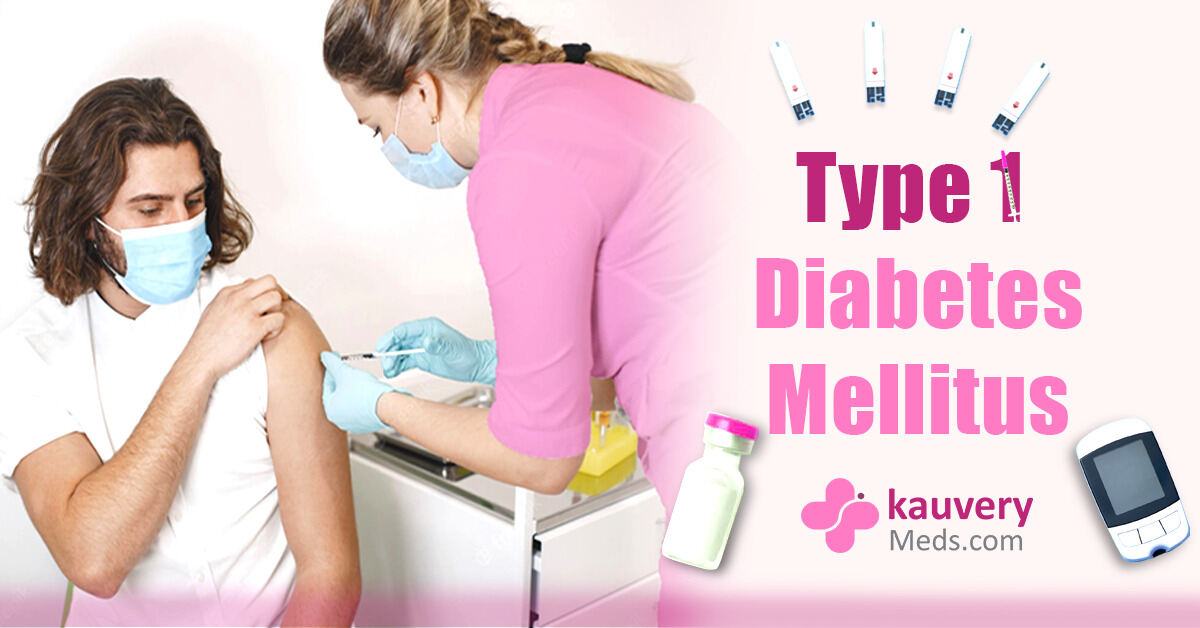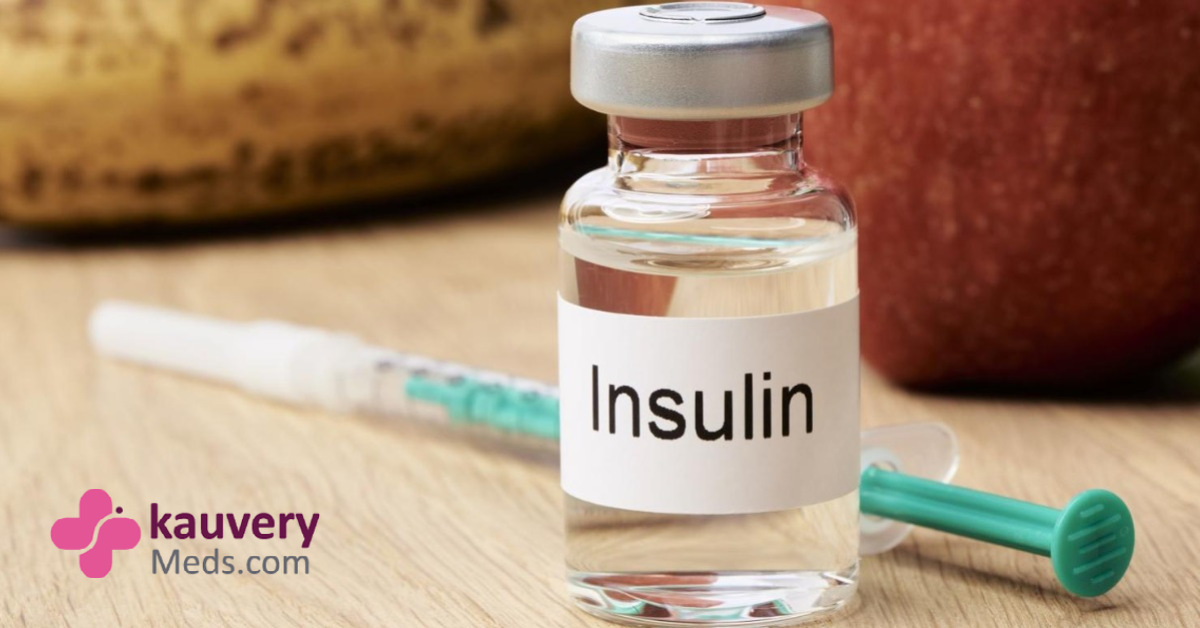Understanding Diabetes: Fasting and Other Essential Sugar Tests
Jun 18, 2024
Introduction:
Diabetes is a chronic condition that affects how your body turns food into energy, primarily involving insulin regulation and blood sugar levels. Proper diagnosis and monitoring are crucial for effective management. Various sugar tests, including blood and urine sugar tests, play a pivotal role in diagnosing and monitoring diabetes.
Importance of Sugar Tests:
In today's health-centric world, monitoring your blood sugar levels is paramount, particularly for those at risk of or managing diabetes. Sugar tests, which measure glucose levels in the blood, play a crucial role in diagnosing and managing diabetes, ensuring better health outcomes. KauveryMeds.com will delve into the various types of sugar tests, the convenience of home sample collection, and the diagnostics involved in these tests.
What Are Sugar Tests?
Sugar tests, also known as blood glucose tests, are essential for diagnosing diabetes, monitoring glucose levels in people with diabetes, and even for general health check-ups. These tests provide critical insights into how your body processes sugar, which is vital for maintaining overall health and preventing complications associated with diabetes.
Types of Sugar Tests Diagnostics
Fasting Blood Sugar Test:
A fasting blood sugar test measures blood glucose levels after an overnight fast. It is one of the most common diabetes tests. Typically, you need to fast for at least 8 hours before the test. This test provides a baseline measure of how much glucose is in your blood when you haven't eaten, which helps in assessing your body's ability to manage blood sugar levels.
- Normal range: 70-99 mg/dL
- Pre-diabetes: 100-125 mg/dL
- Diabetes: 126 mg/dL or higher
This test is crucial as elevated fasting glucose levels can indicate insulin resistance or insufficient insulin production.
Insulin Fasting Insulin Antibodies Insulin Random Serum
Other Diabetes Blood Tests
- Random Blood Sugar Test (Random Glucose Test): This test measures blood glucose levels at any given time, regardless of when you last ate. A result of 200 mg/dL or higher indicates diabetes, especially if accompanied by symptoms of hyperglycemia.
- Gestational Diabetes (OGTT): A gestational diabetes test, typically the Oral Glucose Tolerance Test (OGTT), involves fasting overnight, then drinking a glucose solution, and measuring blood sugar levels before and two hours after ingestion. This test helps determine how well the body processes glucose during pregnancy. Early detection through this test is crucial for managing blood sugar levels and ensuring a healthy pregnancy.
Insulin PP 2hrs Serum Homa IR Insulin Resistance Index Antigen Test
- Haemoglobin A1C Test (HbA1C): Also known as the glycated haemoglobin test, the A1C test measures your average blood sugar levels over the past two to three months. An A1C level of 6.5% or higher suggests diabetes. The HbA1C test is crucial for the long-term management of diabetes, giving a broader view of glucose control over time.
Postprandial Blood Sugar Test
This test measures blood sugar levels exactly two hours after eating. It helps determine how effectively your body is processing glucose post-meal, which is crucial for diabetes management.
- Normal range: Less than 140 mg/dL
- Impaired glucose tolerance (pre-diabetes): 140-199 mg/dL
- Diabetes: 200 mg/dL or higher
Free Home Sample Collection:
For many, the thought of frequent visits to the clinic for blood tests can be daunting. This is where free home sample collection services come into play. These services are designed to make monitoring your blood glucose levels convenient and stress-free. Here's how it typically works:
- Scheduling a Collection: You can schedule an appointment online or via a phone call. A trained Phlebotomist will visit your home at the scheduled time.
- Sample Collection: The Phlebotomist collects a blood sample using sterile techniques to ensure accuracy and safety.
- Laboratory Analysis: The collected sample is then sent to a certified laboratory for analysis.
- Results and Consultation: Results are usually available within a few days. You can access them online. Many services also offer a consultation with a doctor to discuss your results and any necessary next steps.
Benefits of Sugar Tests:
Regular sugar tests are invaluable for various reasons:
- Early Detection: Identifying high blood sugar levels early can help in the timely diagnosis of diabetes or prediabetes, enabling early intervention and lifestyle modifications.
- Managing Diabetes: For those already diagnosed with diabetes, regular testing helps in managing the condition effectively by keeping track of how well your treatment plan is working.
- Preventing Complications: Maintaining blood sugar levels within the target range helps prevent complications such as nerve damage, kidney disease, and cardiovascular problems.
Home Sugar Tests:
With the advent of technology, home sugar tests have become more accessible and user-friendly. Devices like glucometers and continuous glucose monitors (CGMs) allow individuals to track their blood sugar levels in real time. These devices provide immediate feedback, helping you make informed decisions about your diet, exercise, and medication.
- Glucometers: These are portable devices that require a small blood sample from a fingertip prick. After that, the device shows the blood sugar level in just a few seconds.
- Continuous Glucose Monitors (CGMs): These devices involve a small sensor inserted under the skin, usually on the abdomen or arm. The sensor continuously measures glucose levels and transmits the data to a monitor or smartphone app, providing real-time updates and trends.
Urine Sugar Test
While less common than blood tests, urine sugar tests correlate to high blood glucose levels. These tests measure glucose presence in the urine, which usually occurs when blood sugar levels are significantly high. However, they are less precise than blood tests and often used as supplementary tests.
Pre-diabetes and Diabetes Management:
Blood sugar levels that are higher than usual but not high enough to be categorised as diabetes are called Pre-diabetes. It is essential to use these tests for early detection. Diabetes can be delayed or prevented by adopting new lifestyle practices like managing weight, exercising frequently, and maintaining a nutritious diet.
For those diagnosed with diabetes, regular monitoring through various sugar tests is essential for effective management. Consistent testing helps in adjusting treatment plans, ensuring blood sugar levels remain within the target range, and preventing complications.
Conclusion:
Regular diabetes tests, including fasting blood sugar tests, random blood tests, postprandial tests, and urine sugar tests, are crucial for diagnosing and managing diabetes. These tests provide valuable information about your blood sugar levels and help in early detection and effective management of diabetes, ultimately leading to better health outcomes. Always consult with healthcare professionals for the best testing schedule and management plan tailored to your needs.
Recent Post

Why Should You Book Lab Tests Online?
_(1)_CAT_1640504567.jpg)
ஸ்மார்ட் போன்களால் ஏற்படும் பிரச்சனைகள்

Type 2 Diabetes Mellitus

Type 1 Diabetes Mellitus
_CAT_1684759383.jpg)
Tooth Cavities

Top 10 Essential Skincare Tips for Healthy and Glowing Skin

Summer Skincare Routines and Sunscreen Recommendations

5-Minute Skincare Routine for Oily Skin

5-Minute Skincare Routine for Dry Skin

நமது வாழ்க்கையில் இன்சுலினின் பங்கு

